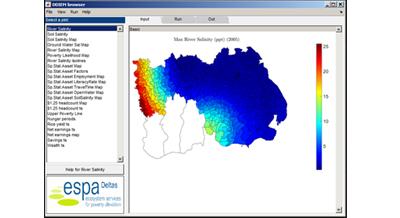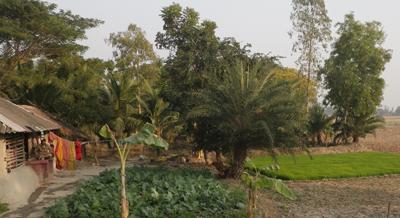Research project: Enhancing the Delta Dynamic Integrated Emulator Model and Concepts to support REACH goals
Coastal Bangladesh is a hotspot for water security issues with salinity being of particular concern. The Delta Dynamic Integrated Emulator Model (ΔDIEM) is an integrated model that directly links exogenous and endogenous drivers to ecosystem services and (uniquely) population livelihoods and well-being. It produces several water security related indicators (flooding, salinisation, food production, poverty, health, etc.). The aim of this project is to enhance the water security aspects of ΔDIEM, develop the REACH-relevant water security indicators within ΔDIEM, apply the model for REACH scenarios and investigate how these methods might be integrated more into the REACH assessment framework.

